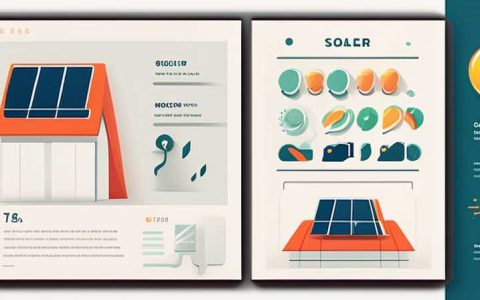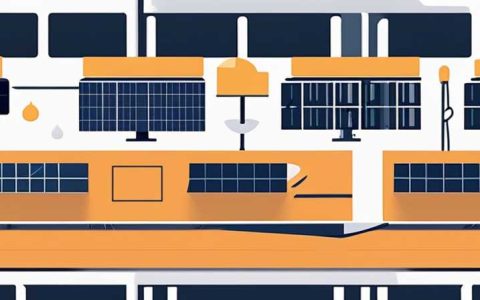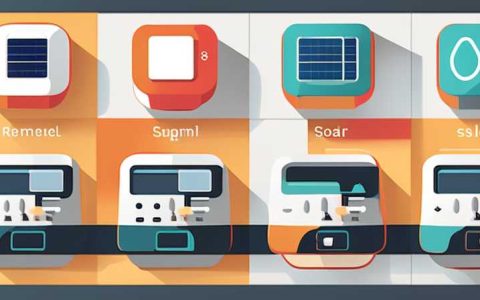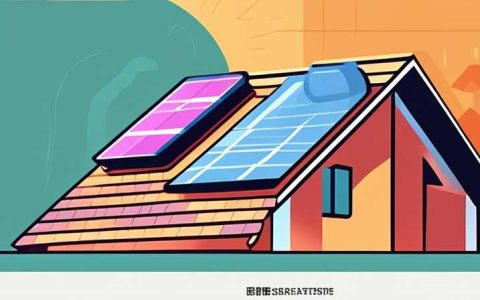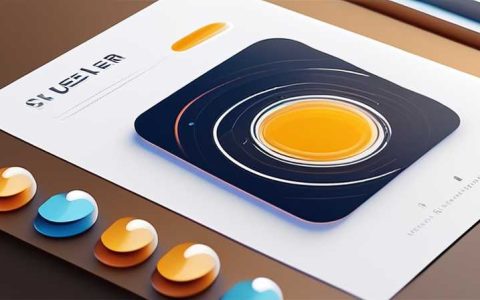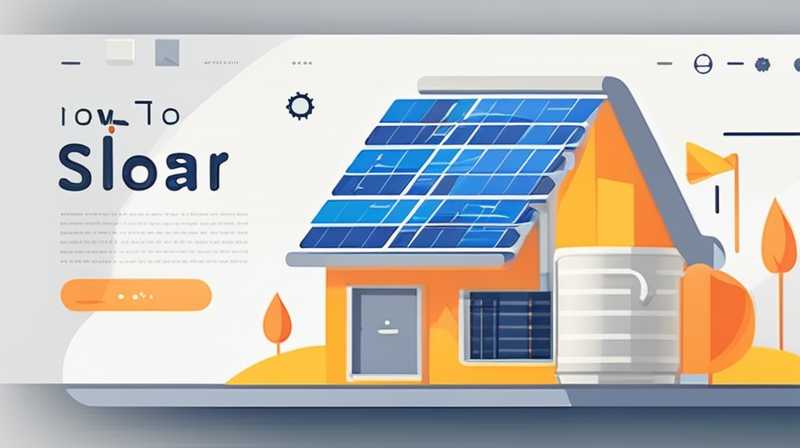
1. Solar energy can become dysfunctional through several critical actions and decisions, including: 1. Ineffective installation practices, 2. Poor maintenance and cleaning habits, 3. Lack of appropriate technology, 4. Ignoring regulatory compliance and safety standards. Each of these aspects plays a significant role in compromising the effectiveness of solar energy systems. For example, ineffective installation practices can lead to suboptimal panel orientation and tilt. This results in diminished energy output, affecting the overall efficiency of the solar energy system. Ensuring that solar panels are installed at the proper angles and orientations relative to the sun can maximize energy production. Therefore, understanding how to negatively impact solar energy involves recognizing the importance of these factors.
1. INEFFECTIVE INSTALLATION PRACTICES
The installation of solar energy systems is a critical factor influencing their effectiveness and longevity. When panels are improperly installed, several issues may arise. First, the angle and orientation of solar panels can significantly affect their ability to capture sunlight. If panels are mounted incorrectly, they may face away from optimal sunlight exposure, leading to reduced energy production. Moreover, electrical connections can become compromised if not properly handled, resulting in increased resistance and potential overheating, which poses safety risks.
Additionally, poor structural support can lead to physical damage. Solar panels need adequate mounting systems to withstand environmental stresses such as wind and snow loads. Neglecting this aspect can lead to catastrophic failures, requiring costly repairs or replacements. Truly understanding the installation process requires collaboration with experienced professionals who can assess the site conditions, recommend suitable panel placements, and ensure compliance with local regulations.
Furthermore, the materials used during installation can also impact performance. Utilizing subpar mounting brackets or connectors can compromise not only the panels’ integrity but can also lead to corrosion or other damage over time. Investing in quality components leads to long-term reliability and efficiency. Installing panels with sufficient consideration for local climate conditions—including variations in temperature, precipitation, and exposure to elements—is crucial.
In summary, the effectiveness of a solar energy system is significantly influenced by installation practices. Proper orientation, secure mounting, and high-quality materials are essential components for ensuring optimal performance.
2. POOR MAINTENANCE AND CLEANING HABITS
Solar panels, like any other technological system, require regular maintenance for optimal functionality. Neglecting maintenance can drastically impact the efficiency of the solar energy system. Dust, dirt, and debris can accumulate on the surface of solar panels, obstructing sunlight and consequently decreasing energy production. Researchers have found that even a small layer of dirt can significantly reduce the output of solar panels, particularly in arid regions where dust is prevalent.
Regular cleaning is paramount. However, improperly cleaning panels can also lead to damage. Some individuals may use harsh chemicals or abrasive materials that scratch the panel surfaces, thereby diminishing their efficiency. Utilizing suitable cleaning materials and soft methods is vital to maintain the integrity of the panels while ensuring they remain clear and efficient.
Another critical aspect of maintenance involves monitoring performance and identifying issues early. Regular inspections help detect problems like micro-cracking, corrosion, or electrical faults before they escalate into major repairs. Failing to monitor system performance can lead to significant energy losses and financial drain over time. Advanced monitoring systems provide real-time data on energy production, allowing owners to track efficiency and identify any discrepancies promptly.
In essence, maintaining solar panels involves a balance between regular cleaning practices and proactive monitoring. Establishing a systematic maintenance schedule can mitigate issues that might arise from neglect.
3. LACK OF APPROPRIATE TECHNOLOGY
Technology plays an instrumental role in the effectiveness of solar energy systems. Utilizing outdated or ineffective technology can lead to inefficient energy production, making it crucial to stay updated with the latest advancements in the field. For instance, traditional solar panels may have lower efficiency rates compared to modern alternatives that utilize advanced photovoltaic materials and designs.
Moreover, incorporating battery storage technology is essential for optimizing solar energy use. Without efficient battery systems, excess energy generated during the day may go to waste. Many homeowners and businesses overlook this aspect, relying solely on grid connections and failing to capitalize on energy generated during peak sunlight hours. Investing in high-capacity battery storage systems allows users to harness energy for later use, thereby maximizing the return on investment.
Additionally, the integration of smart energy management systems can significantly enhance the operational capabilities of solar energy systems. Such technologies allow for real-time adjustments based on energy demand and availability, ensuring that systems operate at their highest efficiency levels. Neglecting to incorporate smart technology can lead to significant energy losses and compromise the financial viability of solar projects.
In summary, utilizing the latest technology and smart management systems is crucial for maximizing solar energy effectiveness. Owners should stay abreast of advancements to ensure their solar energy systems are operating optimally.
4. IGNORING REGULATORY COMPLIANCE AND SAFETY STANDARDS
Compliance with regulations and safety standards is vital for the successful operation of solar energy systems. Ignoring these guidelines can lead to severe consequences, including legal ramifications and safety hazards. Local and national codes often dictate the installation procedures, electrical connections, and system maintenance protocols that must be followed to ensure safety and efficiency.
Failing to adhere to regulatory standards can not only jeopardize the functionality of solar energy systems but may also lead to dangerous situations such as electrical fires or system failures. Compliance often requires formal inspections and certifications, which are crucial for affirming the system’s safety and reliability. Consequently, investment in solar technology may be wasted if systems are not up to code.
Furthermore, neglecting safety considerations during installation poses risks to workers and the public. Proper training and adherence to safety protocols are essential to prevent accidents while working with electrical components, heights, or heavy machinery. Ensuring that all personnel involved in the installation and maintenance of solar systems are educated on safety procedures can mitigate potential hazards significantly.
In conclusion, safety and regulatory compliance play a crucial role in the effectiveness of solar energy systems. Following established guidelines not only fosters a safe environment but also enhances the performance and reliability of solar technology.
FAQs
WHAT ARE THE COMMON MISTAKES DURING SOLAR PANEL INSTALLATION?
Several common mistakes can occur when installing solar panels. One significant error includes improper orientation and angle, leading to inefficient sunlight capture. Panels may not be aligned to maximize exposure to the sun, and this misalignment could result in a considerable loss of energy efficiency. Furthermore, inadequate assessments of the installation site may overlook factors like shading from trees or nearby structures, reducing the panels’ effectiveness even further.
Another mistake is the use of poor-quality materials or components in the installation process. If installers choose inadequate mounting systems or subpar equipment, the long-term performance and durability of the solar energy system can be compromised significantly. Ultimately, collaborating with experienced professionals can help in minimizing installation errors and ensuring optimal system performance.
HOW DOES MAINTENANCE AFFECT SOLAR ENERGY EFFICIENCY?
Maintenance plays a pivotal role in maintaining solar energy efficiency. Regular cleaning and inspection of solar panels ensure they remain unobstructed by dirt, dust, or debris, which can significantly decrease energy output. Accumulated grime on solar panels can obstruct sunlight, leading to potential energy losses ranging from 20% to 30%. Proper cleaning techniques and periodic inspections can greatly enhance energy production.
Moreover, neglecting preventive maintenance can result in undetected issues that may escalate into larger problems. Regular assessments of electrical connections, structural integrity, and performance metrics can pinpoint small concerns before transforming into costly repairs or system failures. Consequently, establishing a consistent maintenance schedule becomes essential for optimizing the efficiency of solar energy systems.
WHAT TECHNOLOGIES ARE IMPORTANT TO OPTIMIZE SOLAR ENERGY PRODUCTION?
Several technologies contribute substantially to optimizing solar energy production. Advanced photovoltaic systems, which include higher-efficiency panels and innovative designs, can significantly increase energy conversion rates compared to traditional models. Many newer solar technologies utilize improved materials that capture sunlight more effectively.
Moreover, energy storage solutions, including advanced batteries, are crucial for capturing excess energy produced during peak sunlight hours. These systems enable users to store energy for nighttime use or during periods of low sunlight, maximizing the overall efficiency of solar installations. Additionally, smart energy management systems provide valuable real-time data that can help in adjusting energy consumption according to availability and demand. By integrating these technologies, solar energy systems can achieve their full potential.
Solar energy is hugely beneficial, yet understanding how to subvert its effectiveness requires a deep dive into various critical factors. From installation practices to ongoing maintenance, each element plays a substantial role in dictating productivity. Utilizing appropriate technology, adhering to relevant regulations, and performing routine upkeep creates a robust infrastructure that maximizes energy production and minimizes waste. By recognizing and avoiding pitfalls in these areas, one can ensure that solar energy systems operate efficiently and sustainably, reaping the environmental and financial rewards that stem from harnessing renewable energy. Taking the necessary precautions to prevent mishaps ensures the continued growth and evolution of solar technology, ultimately leading to a brighter and more sustainable future for energy consumption. Therefore, the focus must remain not only on innovation and advancement but also on the diligent care and responsibility that comes with managing our energy systems. Various stakeholders must collaborate and invest in education and resources to make sure solar energy systems remain reliable, efficient, and beneficial for generations to come.
Original article by NenPower, If reposted, please credit the source: https://nenpower.com/blog/how-to-mess-up-solar-energy/



